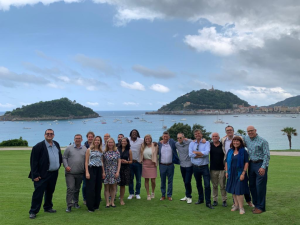January 2013 (ISSN 1989-7022).
Risks, Precautions, and the Precautionary Principle.
Txetxu Ausín (Spanish National Research Council), Editor in Chief.
Iñigo Álvarez Gálvez (University of Chile), Invited Editor for this issue.
With no doubt, the precautionary principle is one of the regulatory ideas with more predicament today. It is a principle we apply prior to action, and it plays an important role in several areas (bioethics, public health, or the environment) reflected in the legal domain, both in legislation (national and international) and in court procedures. Given its importance and the problems around its very definition and its implementation, we devote the Discussion section of this issue 11 of DILEMATA to ethical, legal and political reflections on the precautionary principle, collecting some of the contributions to the Spanish-Chilean Symposium “Talking about risks and precautions” held on 6 and 7 November 2012 in Santiago de Chile and organized by the research project KONTUZ! (MINECO FFI2011-24414). Other contributions received in our journal’s inbox have been added to these. Thus we cover a plurality of approaches to the precautionary principle ranging from its definition and consolidation in the international legal field, to its connection with the notion of limits and the dialectic between nature and human action (techné), through its application to specific issues in environmental ethics, bioethics and contemporary politics, concluding with an unavoidable inquiry into the epistemological status of the principle.
In its Articles section this issue includes a reflection on breastfeeding as a space for women’s empowerment and social transformation, an analysis of the arguments about same-sex marriage in reference to the jurisprudence of the Brazilian courts, and an exploration of resilience concepts applied to persons with disabilities.
The Review section includes a study of the latest book by Jesse Prinz about human nature and the old debate between biology and culture on human behavior.
We hope that DILEMATA continues attracting your interest, and encourage you to take part in this project, either by sending your proposals for considerations, or by replying to the debates already opened in this or previous issues. DILEMATA is an open journal.




